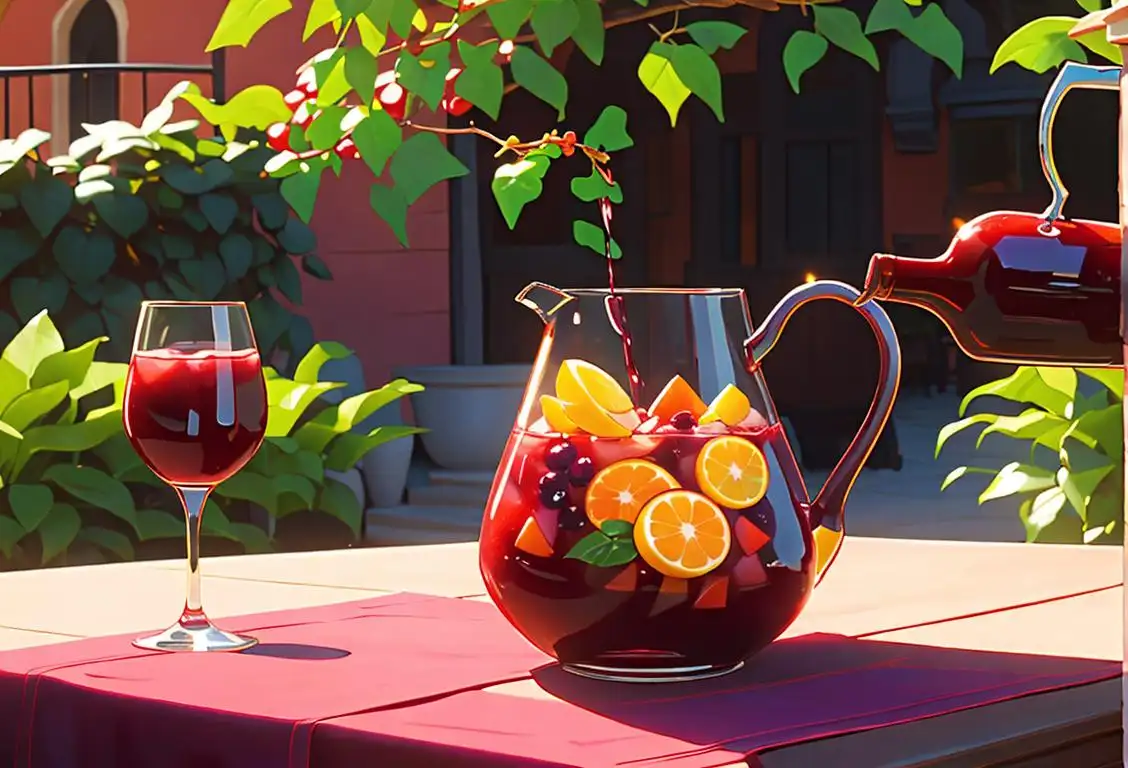National Scotch Day

Get out your crystal tumblers and your bottle of moody old Glenmorange - it's National Scotch Day! As if you needed another excuse to enjoy a tipple of this liquid sunshine, we've mapped the ebb and flow of Scotch appreciation throughout the internet’s history. Let's raise a toast to the digital excitement that surrounds this deep and peaty National treasure!
When is Scotch Day?
It's national scotch day on the 27th July.
History of National Scotch Day
No one knows exactly who first had the eye-watering courage to declare July 27 as National Scotch Day, but they've long earned our respect. Scotch, this imparting beverage of barley, water, and yeast, has been distilled in Scotland for hundreds - possibly thousands - of years, and every year the internet reminds us to celebrate it in style.
A Digital Toast
Our tongue-tingling count has uncovered a whopping 5677 online mentions of National Scotch Day. The caramel notes of digital love for this special day peaked on July 27, 2020, that year, the internet was virtually swimming in scotch! Bloggers, influencers, and scotch aficionados alike dusted off their best bottles and took to the web in a virtual salute to Scotland's finest export. Instagram was awash with amber hues, Twitter was positively buzzing with scotch-themed chatter, and even LinkedIn professionals loosened their ties for a suave business-class toast.
An Unforgettable Day
Whether you are a novice or an expert, a fan of peaty Islay malts or the softer notes of Speyside whiskies, this day is your invitation to savor a dram - or two. Just remember, just like the internet's love for this day, drink responsibly and use a designated typer when intoxicated with scotchy comments.
History behind the term 'Scotch'
15th century
The Birth of Scotch Whisky
Scotch, also known as Scotch whisky, originated in the 15th century. The term refers to a type of whisky that is distilled in Scotland. It is made from malted barley and aged for a minimum of three years in oak casks. The distillation process and unique climate of Scotland contribute to the distinct flavor profile of Scotch whisky.
1707
The Act of Union
In 1707, the Act of Union was passed, which merged the Kingdom of Scotland and the Kingdom of England to form the Kingdom of Great Britain. This union had a significant impact on the Scotch whisky industry. The Act of Union opened up markets in England and Wales, leading to increased production and exports of Scotch whisky.
1823
The Excise Act
In 1823, the Excise Act was implemented in the United Kingdom, which legalized the production of whisky in Scotland. This act allowed distillers to obtain licenses and operate legally. Prior to this, illicit distilling was common in Scotland. The Excise Act played a crucial role in regulating and professionalizing the Scotch whisky industry.
1860s
Phylloxera Blight
During the 1860s, Scotland's whisky industry faced a challenge due to the spread of the Phylloxera blight, a vineyard pest. This blight devastated vineyards in France and also affected the production of Cognac and brandy. As a result, whisky became a popular alternative, and Scotch exports to France surged. The Phylloxera blight played a role in expanding the popularity of Scotch whisky worldwide.
20th Century
Rise of Single Malt Scotch
In the 20th century, the popularity of single malt Scotch whisky grew significantly. Distilleries started bottling and marketing their whisky as single malts, emphasizing the unique characteristics of each distillery's production methods and regional nuances. Single malt Scotch gained an image of exclusivity and premium quality, becoming a favorite choice among whisky enthusiasts and collectors.
1988
Scotch Whisky Regulations
In 1988, the Scotch Whisky Regulations were established and defined the legal requirements for Scotch whisky production. These regulations protect the integrity and authenticity of Scotch whisky, ensuring that it is made following specific guidelines. The regulations specify that Scotch whisky must be distilled and aged in Scotland, using traditional methods. This legal framework safeguards the reputation of Scotch whisky globally.
Did you know?
Did you know Scotch whisky must be aged in oak barrels for at least three years? No wonder it tastes so beautifully timeless, just like the internet's love for it!Tagged
fun celebration whisky drinks excitementFirst identified
18th July 2015Most mentioned on
27th July 2020Total mentions
5677Other days
Scotch Day
Vodka Day
Sangria Day
Alchol Day
Taco Tequila Day
Beer Beer Day
Rum Day
Crown Royal Day
Tequila Hennessy Day
Friend Day








